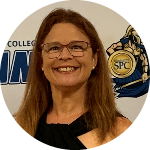Tips for a Successful First Interview
Here are some tips and resources to help you ace your first interview.

Congratulations! You have been invited to interview for your dream job. Interviewing is more than just an introduction to the position you are being considered for; it is your opportunity to share the value of what you can bring to that organization and to discover what that organization can do for you.
This is your first opportunity to meet with your potential employer, so you don’t want to chance it. Don’t worry, we have you covered! Here are some tips and resources to help you ace your first interview.
Before the Interview
Whether your first interview is going to be virtual or in-person, here are some tips that have worked for me and my students.
Dress accordingly. Business professional attire is preferred for most interviews. Even if you know that the company has a more “casual” environment, it is still best to dress in professional attire.
Arrive early. Plan to arrive at the workplace or log into the virtual meeting at least 15 minutes before your scheduled interview time. This will allow for any traffic delays or technical issues you may encounter. Test your technical equipment for virtual meetings and be sure to have audio connected and a working video camera.
Prepare a brief elevator pitch. Prepare a 2-minute introduction of yourself for your Interviewer. Include an experience where you demonstrated leadership or share an experience that shows your comfort level with the position you are interviewing for.
Research the organization. They know you are interested in working there, so impress them with what drove you to make your decision to apply.
Network with current employees. If you are fortunate enough to know someone who works with the organization you are interviewing with, remind them you are interviewing and ask for some advice on how to approach the interviewer.
Practice a mock interview. College professors and mentors are often asked to help students with interviewing. They know your style and can help you practice, so you can feel comfortable when the time comes. You can also reach out to the career center on campus.
During the Interview
One common question is “Where do you see yourself in the future?” Since you have been asked to interview, that means the organization considers you qualified for the position and is looking forward to learning more about you and your experiences both professional and personal.
The interview is the opportunity for you to shine. Expand upon your experiences and talk about the things that you’re most proud of that will help you demonstrate to that you are the right fit for the job.
Questions that You Should Not Ask During a First Interview
What is my salary? When you applied for the position, you were most likely given a range of the salary for the position. Best to ask this question in a follow-up interview or wait until the interviewer asks you for your desired salary if that comes up.
What are my benefits? Again, the benefits have probably been posted in the job description and will most likely be discussed in a follow-up interview/offer.
Questions that You Should Ask During a First Interview
Never underestimate when the Interviewer asks you, “Do you have any questions for us at this time?” Your answer should be “yes,” and here are some questions you may consider asking.
Can you tell me more about the responsibilities of this position? It shows professionalism to ask about your responsibilities. You know what the job description is; however, you can ask the interviewer what they expect from you and have them share the goals for the position you are interviewing for.
Can you tell me more about the culture of your organization? Even though you are somewhat familiar with the organization, don’t be afraid to ask the interviewer about the culture of the organization. This gives the organization the opportunity to sell themselves to you and could make a great impact on your decision if you have other opportunities to choose from.
After the Interview
Following up with the organization after the interview is very important. While you just made a first impression, the follow-up could help you seal the deal. Here are some tips for following up.
Send a “thank you” communication to the individuals who participated in the interview immediately following the interview. This can be done via email or phone depending on your comfort level. You may even mail a handwritten thank you card. This should be just a simple, “thank you for meeting with me today, I look forward to learning more about the organization.”
Wait an appropriate amount of time before reaching out to ask about your “status.” You want to be sure the organization knows you are excited about the position but be sure to wait a few days or even a week before reaching out and asking for results. The interviewers) may even tell you in the interview when it is a good time to reach out.
Always be prepared and never be afraid to ask questions. Good luck!!


